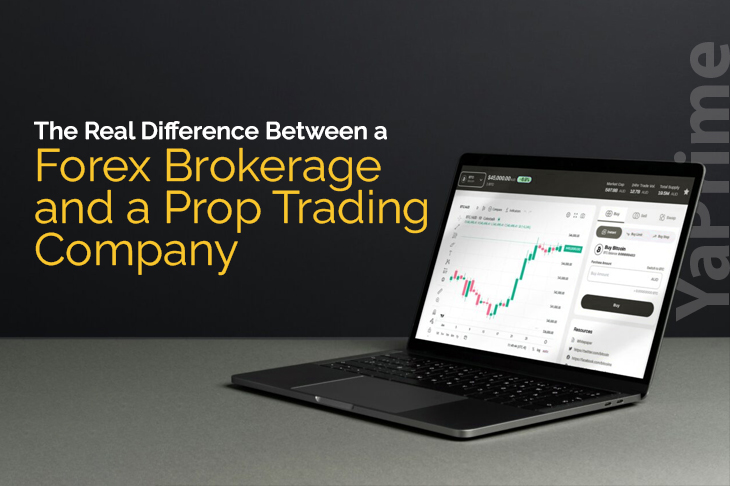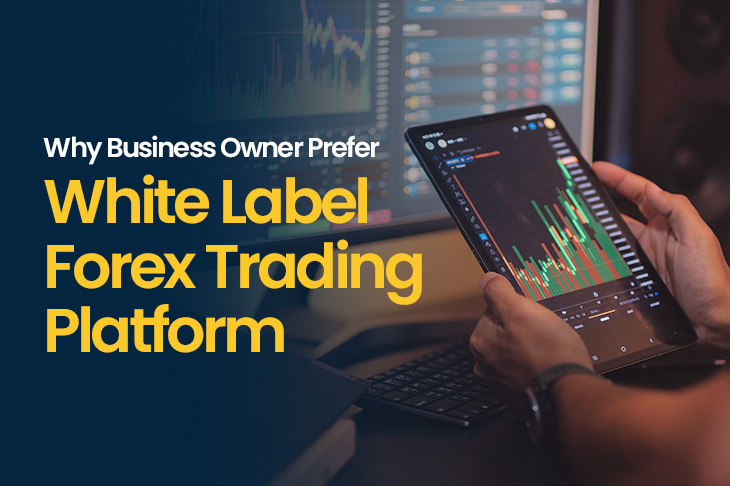The Real Difference Between a Forex Brokerage and a Prop Trading Company
If you’re new in the trading business, it can be pretty confusing between a forex brokerage and a prop trading company. On the surface, both give you access to markets. But the way they operate, how money flows, and the risks involved are completely different.
For traders searching proprietary trading firms for beginners, or even the best proprietary trading firms, it’s important to know these differences before deciding where to start. Brokers and prop firms serve different needs. YaPrime works closely with both models, providing forex broker services and solutions for firms building prop trading company structures.

What Is a Forex Brokerage?
A forex brokerage connects traders to liquidity. A broker earns through spreads, commissions, or both. Clients trade with their own money. Risk is carried by the client, not the broker. The broker’s job is execution and infrastructure.
That’s why best trading platforms for prop traders often overlap with broker platforms like MT4 and MT5. Even if you run a forex brokerage, you need the same liquidity, the same stable servers, and the same order-routing technology.
For businesses learning how to start a forex brokerage, YaPrime provides white label systems, liquidity connections, and compliance support.
What Is a Prop Trading Company?
A prop trading company funds traders with its own capital. Instead of risking personal money, traders pass an evaluation or selection process. Once inside, they get funded accounts. Profits are shared between the firm and the trader.
Here is where many traders search for the highest paying prop trading firms. They want a fair profit split and quick payouts. The top ones use the best trading platforms for prop traders with strict risk engines.
If you are comparing proprietary trading firms for beginners, remember: the prop model is different from a broker. A prop trading company limits position sizes, enforces stop-loss rules, and sometimes uses simulated feeds for risk management.
Key Differences Between Brokers and Prop Firms
- Capital: Brokers = client money. Prop firms = company money.
- Risk: Brokers offload risk to liquidity providers. Prop firms keep risk in-house.
- Regulation: Forex brokerages usually require licenses. Prop firms often operate in flexible jurisdictions.
- Earning Model: Brokers earn via spreads/fees. Prop firms earn via trader performance.
- Technology: Both rely on the best trading platforms for prop traders like MT5 or custom APIs.
This is why YaPrime develops solutions that work for both. Whether you want to start a forex brokerage or expand into a prop trading company, the infrastructure requirements overlap, liquidity, CRM, and risk management.
Where Does YaPrime Fit In?
YaPrime has positioned itself as a provider for both sides:
- For brokers: forex broker services, liquidity aggregation, and MT5 white label solutions.
- For prop firms: evaluation model setup, profit-share systems, and backend integrations.
So if you’re looking for the best proprietary trading firms, or planning to build one yourself, YaPrime offers the foundation. The same applies if your focus is on the highest paying prop trading firms, payouts and trust only work if the backend infrastructure is solid.
Whether It’s Forex Brokerage or Prop Trading Company, YaPrime is The Way!
Whether you’re evaluating proprietary trading firms for beginners or planning how to start a forex brokerage, the lesson is the same. Both models require liquidity, compliance, and reliable platforms.
YaPrime provides these services end-to-end, so you don’t waste time fixing broken tech when you should be growing your business.
Talk to YaPrime today about your broker or prop trading company setup.




